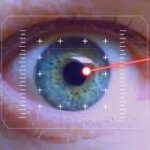Prolonged use of digital devices and other visually demanding activities can lead to significant discomfort and sometimes a condition often referred to as vision-related fatigue. When symptoms persist, they may indicate a deeper issue with how the eyes and brain work together. Neuro-Optometric care provides a specialized approach to address the underlying neurological pathways that control vision. This care offers solutions that go beyond standard eyeglasses or contact lenses. This field examines the connection between the visual system and the brain to diagnose and manage complex vision problems.
Recognize Vision Fatigue Symptoms
Vision fatigue, also known as asthenopia, manifests through a range of symptoms that can impact daily activities and overall well-being. Individuals may experience tired, sore, or itchy eyes, along with headaches that are often centered around the forehead and temples. Other common indicators include blurred or double vision, increased sensitivity to light, and difficulty concentrating on visual tasks. These symptoms often worsen after extended periods of reading, computer use, or driving. Recognizing these signs is the first step toward seeking appropriate evaluation and care.
Understand Neuro-Optometric Care
Neuro-Optometric care is a specialized area of optometry focused on the relationship between vision, the body, and the brain. A neuro-optometrist conducts a comprehensive assessment to evaluate how your visual system processes information. This includes eye tracking, focusing, and teaming abilities. This evaluation goes beyond a standard eye exam that primarily tests for acuity. Instead, it identifies functional vision problems that may contribute to fatigue by disrupting the efficient communication between the eyes and the brain. The goal is to understand the root cause of your visual discomfort.
Explore Targeted Therapy Options
Following a thorough assessment, a neuro-optometrist may recommend a program of neuro-optometric rehabilitation, also known as vision therapy. This is a non-invasive, personalized treatment plan designed to improve and retrain the visual system. Therapy may involve a series of activities and exercises using specialized lenses, prisms, and filters to help the brain more effectively control eye alignment, movement, and focusing. These targeted interventions aim to strengthen the neurological connections that support comfortable and efficient vision.
Support Long-Term Eye Health
In addition to targeted therapies, maintaining certain habits can support long-term visual comfort and reduce the likelihood of recurring fatigue. One effective strategy is to follow the 20-20-20 rule: for every 20 minutes of close-up visual work, take a 20-second break to look at something at least 20 feet away. Making sure your workspace is ergonomically sound with proper lighting and screen positioning can also help to minimize visual strain. These practices complement professional care and contribute to sustained eye health.
Take Charge with Neuro-Optometric Solutions
Vision-related fatigue can significantly impact your quality of life, but effective solutions are available. By addressing the functional aspects of how your eyes and brain work in unison, Neuro-Optometric solutions can provide lasting relief from persistent symptoms. This specialized care moves beyond simply correcting your eyesight to improving your overall visual function and comfort. If you are experiencing symptoms of vision fatigue, try scheduling a consultation with a neuro-optometrist to explore your options.



